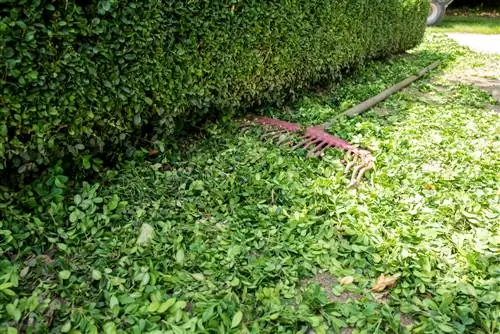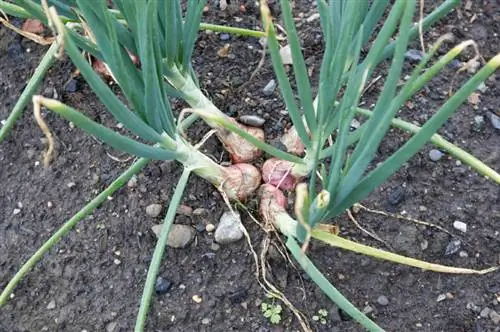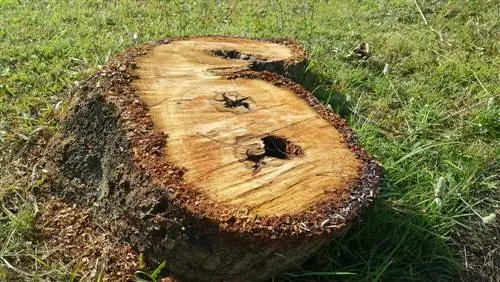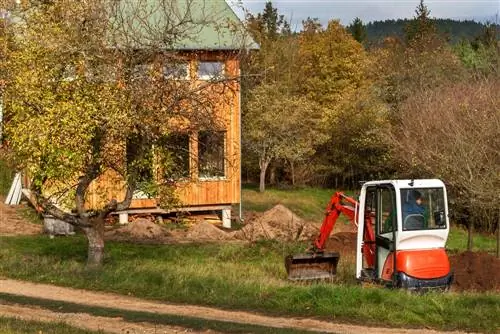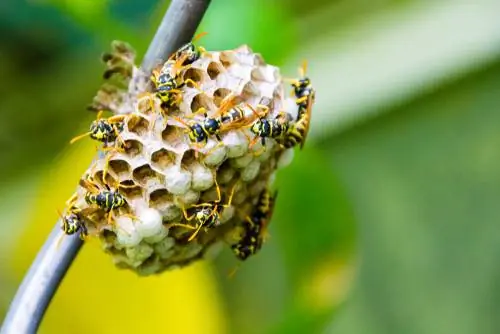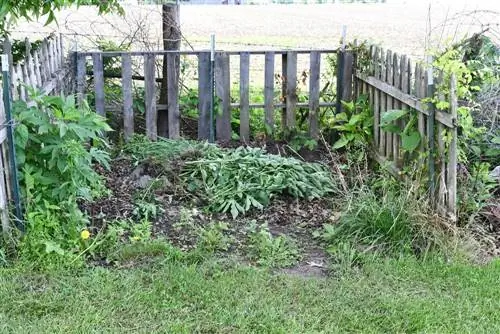- Author admin leonars@hobbygardeners.com.
- Public 2023-12-16 16:46.
- Last modified 2025-01-23 11:21.
Boxwood is a very popular tree for cut hedges and creative topiaries. Whether accurate privacy hedges, balls, spirals or other structures: with a good pair of secateurs you can shape the evergreen plant as you wish. But where there is cutting, there is of course waste: so where should the cuttings go?
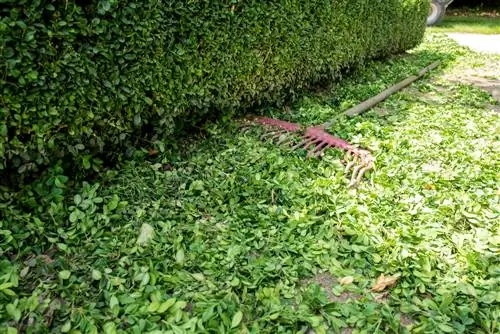
Can you compost boxwood?
Boxwood can be disposed of in the compost by chopping it finely, mixing it with lawn clippings or unripe compost and applying it in thin layers. However, diseased or infected clippings should be disposed of in household waste in airtight packaging.
Chop up the boxwood thoroughly
In general, clippings from the garden are ideal for disposal in the compost heap; after all, they are an ecological raw material that is fed into the natural cycle. However, boxwood decomposes extremely slowly, which is also reflected in the leaves remaining green for a very long time. To speed up the composting of plant parts, you should heed these tips:
- Chop the clippings as finely as possible.
- Mix it with grass clippings, as these decompose quickly and act as a kind of propulsion engine.
- It works even better when mixed with compost accelerator or some unripe compost.
- Distribute the material evenly and, if possible, in thin layers.
- Mix compost material every now and then.
- This means that the microorganisms responsible for decomposition are also distributed better.
Only he althy plant material belongs in the compost
However, both composting and use as mulching material are only recommended for he althy plants! Box that is affected by fungal diseases such as the notorious shoot dieback (caused by the fungus Cylindrocladium buxicola) or by pests - especially the introduced box tree borer - definitely does not belong in the compost or as mulching material on garden beds! Dispose of these clippings in airtight packaging with household waste. Under no circumstances should you throw it into the organic waste bin (as its contents are also composted!) and do not dispose of it at collection points such as the local recycling center. There is a danger here, particularly for the boxwood moth, that the animals can spread further. However, some recycling centers have already set up closed containers specifically for such dangerous biological waste: Find out in advance whether this is also the case in your region.
Tip
By the way, boxwood is also very suitable as a mulching material for decorative and commercial beds, as long as you chop it up well and, if necessary, mix it with other materials (such as the grass clippings already mentioned).

